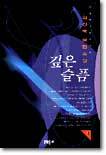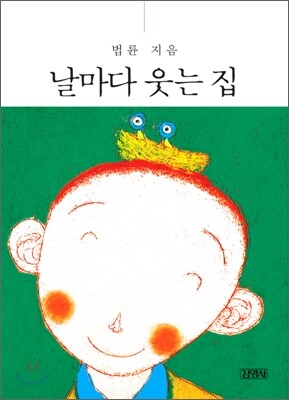Kyung-Sook Shin (born 1963) is a South Korean novelist.
Life
Kyung-sook Shin was born in Jeongeup, North Jeolla Province. She made her literary debut in 1985 when her short story "Gyeouruhwa" (겨울우화 A Winter Fable) was published in the literary journal Munye Joongang. She is the author of nine short story collections, including Jongsori (종소리 The Sound of Bells) and Moonlight Tales (달에게 들려주고 싶은 이야기 Moonlight Tales), and eight novels, including Oettan bang (외딴 방 The Girl Who Wrote Loneliness), Rijin (리진 The Court Dancer), Eommareul butakae (엄마를 부탁해 Please Look After Mom), Eodiseonga nareul channeun jeonhwaberi ulligo (어디선가 나를 찾는 전화벨이 울리고 I'll Be Right There), and Abeojiege gasseosseo (아버지에게 갔었어 I Went To See My Father). She has received a number of prestigious literary awards at home and abroad, including the Yi Sang Literary Award, the Dongin Prize, the Hyundae Munhak Award, Prix de l'Inapercu, and the Man Asian Literary Prize.
Writing
Shin is part of the ‘386 generation,’ a cohort of young Koreans who were particularly politically active in the democracy movement of the 1980s. Despite her political involvement, however, her works look inwards at her characters’ psychological wounds and difficulty in reconciling themselves to their present and future.
It was Shin’s second collection, Punggeumi itdeon jari (풍금이 있던 자리 The Place Where the Harmonium Was), published in 1993, that made a name for her. Her stories, which accurately captured the characters’ subtle interior shifts and furthermore, their existential depths, in elegant, delicate prose, were a new and fresh approach in Korean fiction, then dominated by narrative-driven realist works. Shin’s first novel Gipeun seulpeum (깊은 슬픔 Deep Sorrow), published the following year, and her second, The Girl Who Wrote Loneliness, published a year later, demonstrated Shin’s competence not only as a stylist but also a storyteller. The former, a love story between the heroine Eun-seo and two men, named Wan and Se, sold over 700,000 copies. The latter is an autobiographical work depicting Shin’s experience as a new arrival in Seoul working in a factory in Guro while attending night school. Her poignant portrayal of the main character’s pain as she suffers her fall from her well-adjusted and wholesome life in the rural village to the struggles of the urban poor, had a great impact on readers and society. In a stream of consciousness narrative method that moves between the past and present, the novel recounts the history of the laborers who were sacrificed in the course of Korea’s industrialization through the eyes of a sensitive young girl.
By the mid-1990s, Shin had become a leading voice in Korean literature. Her devotion to her art bore fruit with a new title published every year or so. Her works were regarded to be on the same level as Pak Kyongni, Park Wansuh, and Oh Jung-hee, and at the same time, enjoyed great commercial success. After publishing a collection in 2003, the writer went on an unprecedented four-year hiatus and came back with The Court Dancer, a more dynamic narrative that still maintained her refined and delicate style. Shin then wrote the international bestseller Please Take Care of Mom, which revolves around a mother who has gone missing after a life of compromise. I Went To See My Father is its follow up, centering on Hon’s efforts to reconnect with her aging father, uncovering long-held family secrets.
Su obra más exitosa hasta el momento es la novela Por favor, cuida de mamá, la cual ha sido publicada en 19 países, entre ellos los EEUU, China y varios países de Latinoamerica y Europa.4 En abril del 2011 la novela fue publicada en castellano (traducción realizada por Aurora Echevarría Pérez).5
Shin Kyong-suk (oder auch Shin Kyoung-sook), wuchs als vierte Tochter von sechs Geschwistern in Chŏngŭp, Provinz Nord-Chŏlla auf. Bis zum Abschluss der Mittelschule legte sie täglich 4 Kilometer Schulweg zu Fuß oder mit dem Fahrrad zurück. Die Eindrücke der Umgebung hatten eine nachhaltige Wirkung auf ihr späteres Schreiben. So ist Chŏngŭp nicht nur ihr Geburtsort, sondern auch ihre seelische Heimat, die den Nährboden für ihre literarische Welt bildet. Da sich die Familie ihre Schulbildung nicht leisten konnte,[2] ging sie 1978 mit ihrem Cousin mütterlicherseits nach Seoul. Dort arbeitete sie in einer Elektronikfabrik in der Fabrikgegend Kuro. Im folgenden Jahr wurde sie als besonders begabte Schülerin ausgewählt, wodurch es ihr möglich war die Yŏngdŭngp'o-Mädchenschule zu besuchen. Tagsüber drehte sie Schrauben in Elektronikprodukte ein, abends schrieb sie das Buch Der Zwerg von Cho Se-hui in ihr Heft ab, statt dem langweiligen Unterricht zuzuhören. Während des Abschreibens wurde ihr klar, dass sie eine schriftstellerische Laufbahn einschlagen wollte.[3] 1982 begann sie ihr Studium im Fach Kreatives Schreiben an der Kunstakademie in Seoul. Zwei Jahre später erhielt sie mit dem Roman Winterparabel den Preis für den besten Nachwuchsautor der Zeitschrift "Literatur und Kunst" (Munye chungang). Somit begann ihre schriftstellerische Karriere. Währenddessen arbeitete sie bei einem Verlag und beim Radio. Dank des Erfolgs ihres Erzählbandes Die Stelle, wo sich ein Harmonium befand war es ihr möglich als freie Schriftstellerin zu arbeiten. Bis jetzt erhielt sie für ihre fünf Erzählbände und vier Romane zahlreiche renommierte Literaturpreise, darunter den Hankook Ilbo Literaturpreis und den Preis für junge Künstler von heute. Diese Auszeichnungen spiegeln ihre Beliebtheit sowohl bei den Lesern als auch bei den Kritikern wider.
Shin Kyong-suk glaubt, dass sie nur in diesem Leben Romane schreiben wird. „Würde mir noch ein weiteres Leben gegeben, würde ich keine Schriftstellerin.“ lautet ihr paradox anmutendes Liebesgeständnis an die Literatur.[4]
Am 16. Juni 2015 veröffentlichte der Autor Lee Eung-jun einen Artikel in der Huffington Post Korea, dass Sin für ihr Werk Legend eine Passage aus Yukio Mishimas Kurzgeschichte Yūkoku (1961) plagiiert haben soll.[5][6] Sin entschuldigte sich und ihr Verleger stellte den Verkauf der Kurzgeschichtensammlung ein.
Shin Kyung-sook naît en 1963 dans une région rurale de Corée du Sud. Elle se passionne pour la littérature et rêve d'en faire son métier. En 1978, sa mère l'accompagne à Séoul. La jeune fille vit chez l'un de ses frères et travaille dans une usine durant la journée. Le soir, elle poursuit ses études secondaires. Elle est admise à l'université et choisit l'écriture créative comme matière principale. Après avoir terminé ses études, elle effectue ses débuts de romancière tout en faisant des petits boulots. Depuis 1993, elle se consacre entièrement à l'écriture1.
Elle a publié à un rythme très régulier une dizaine de romans et des recueils de nouvelles qui lui ont valu les prix littéraires les plus prestigieux.
Œttanbang, paru en 1995, est traduit en français sous le titre La chambre solitaire. En 2009, le prix de l'Inaperçu « étranger » lui est attribué1. Son roman Prends soin de maman ( Eommareul butakhae), publié en 2008, est un best-seller en Corée du Sud, où 2 millions d'exemplaires ont été vendus ; il est traduit dans 24 langues2 et a atteint la 21e place de la New York Times Best Seller list en 2011. L'année suivante, le Man Asian Literary Prize (en) lui est attribué : elle est le premier auteur de Corée du Sud et la première femme à recevoir ce prix littéraire3. En 2013, elle reçoit le Prix Ho-am (section Arts) 2.
申京淑は全羅北道井邑市にある平山申氏同姓一族村の貧しい家で五人兄弟の長女として生まれる。兄弟も多かったため、申は高校進学を断念せざるを得なかった。職業訓練院で技術を身につけるため母方の従姉とともにソウルへ上京する。申京淑は女工として働きながら夜間学校である永登浦女子高校産業体特別学級に入学、勉強を続けた。永登浦女子高校を卒業後、ソウル芸術専門大学文芸創作科に入学、作家としての修練を積む。
ソウル芸術専門大学を卒業して1年後の1985年、文芸中央主催の新人文学賞に『겨울우화 (冬の寓話)』が入選、文壇デビューをする。第2作目の『풍금이 있던 자리 (オルガンのあった場所)』(1993年)がヒットし、人気作家としての地位を確立、その後の作品は常に数十万部数のベストセラーとなっている。
申京淑の作品の人気は、その緻密な構成と観察力にある。作中人物の内的心理を深く探求する手法が独特の文体を生み出している。1990年代頃より文壇で活躍し出した女性作家達のリーダー的存在とも言える。彼女は、1993年に韓国日報文学賞を受賞したのを皮切りに東仁文学賞、現代文学賞、李箱文学賞等、数多くの文学賞を受賞している。その作品は日本にも紹介され、女性から支持を得ているほか、津島佑子との共作『山のある家井戸のある家』を発表するなど、日本人作家との交流もある。
盗作問題[編集]
2015年6月、韓国人作家のイ・ウンジュン(ko:이응준 (작가))が、申の短編小説『伝説』(전설)[5]の一部が、三島由紀夫の『憂国』を盗作しているとの疑惑を提起した [6][7][8]。この疑惑について、申は、三島の『金閣寺』は読んだことがあるが、『憂国』は読んだことがないと反論した[9]。一方、『伝説』が収録された小説集を出版した出版社の創批も「いくつかの文章が似ているとしても、これを根拠に盗作をうんぬんするのは問題だ」「申氏の描写の方が(三島の作品より)比較的優位にあると評価する」と申を擁護した[10][11]。その後、世論の批判の高まりを受け、「『憂国』と『伝説』を読み比べた結果、盗作との指摘が妥当であると思った」「自分の記憶が信じられなくなった」と、盗作の可能性を認めて謝罪し、『伝説』を単行本から削除すること、文学賞の審査委員などをすべて辞退した上で活動を自粛することを表明した[12][13][14]。なお、この騒動の最中、『金閣寺』が韓国内で注目を集め、出版社に注文が急増した。
Син Ген Сук родилась в деревне, в которой даже не было электричества, в простой крестьянской семье. В деревне она провела свое детство, а в возрасте 15 лет приехала в Сеул, где она начала свою городскую жизнь в маленькой комнате со старшим братом и двоюродной сестрой. Днем она работала на заводе в технопарке Гуро, а вечером ходила в специальную женскую промышленную школу. С одной стороны это было трудное время, но с другой стороны, именно тогда она была охвачена интересом к чтению поэзии и романов.
В 1985 году в возрасте 22 лет она дебютировала с повестью “Осенний дождь (Кёуль ухва)”, но эта повесть не привлекла особого внимания. В 1993 году она выпустила сборник рассказов под названием “Там, где был орган (Пхунгыми иттон чари)”, который заинтересовал читателей, затем в 1994 году вышел ее роман “Глубокая печаль (Кипхын сыльпхым) (2 тома)”, в 1995 году - роман “Отдельная комната (Веттан бан)”. Благодаря своему творчеству Син Ген Сук стала типичным писателем, представляющим корейскую литературу 1990-х годов.
Shin Kyung-Sook urodziła się jako czwarte dziecko w licznej rodzinie w małym miasteczku w Południowej Korei. W wieku szestnastu lat przeniosła się do Seulu, gdzie pracowała w firmie produkującej sprzęt stereo i uczęszczała do liceum wieczorowego. Po ukończeniu szkoły średniej rozpoczęła naukę w Instytucie Sztuki na kierunku twórczego pisania. W wieku 20 lat opublikowała pierwsze opowiadanie. Do dziś wydała 7 powieści, 7 zbiorów opowiadań i 3 tomy esejów. Otrzymała między innymi nagrody literackie w Korei takie jak: Nagrodę Młodych Artystów (1993), Nagrodę literacką Hyundae (1994), Literacką Nagrodę Manhae (1995), Literacką Nagrodę Dong (1997) oraz Nagrodę Yi Sanga (2001). W 2006 roku zdobyła Prix de L'Inapercu we Francji. „Zaopiekuj się moją mamą” to jej szósta powieść. W samej Korei Południowej sprzedano 1 500 000 egzemplarzy tej książki. To pierwsza powieść Shin publikowana w języku angielskim w Stanach Zjednoczonych. Książka ma zostać wydana w sumie w 23 krajach, m.in. Anglii, Niemczech, Polsce i Francji. Obecnie Shin Kyung-Sook wykłada na Uniwersytecie Columbia w Nowym Jorku.
신경숙(1963~)은 대한민국의 소설가다.
생애
신경숙은 1963년 전라북도 정읍에서 태어났다. 가정 형편으로 인해 중학교만 졸업하고 1979년에 서울 구로공단의 한 전기회사에 취직했다. 주간에는 공장에서 일하고 야간에는 영등포 여자고등학교에 부설된 산업체 특별학급에서 고등학교 과정을 마쳤다. 국어 선생님에게 문학적 재능이 있다는 격려를 받고 작가의 꿈을 갖게 되었으며 1981년 서울예술대학교 문예창작학과에 진학했다. 대학을 졸업한 1985년 《문예중앙》에 단편 〈겨울우화〉가 당선되어 데뷔했다.
1988년 첫 소설집 《겨울우화》를 내고 소설집 《풍금이 있던 자리》(1993)를 출간하면서 본격적으로 소설가로 인정받기 시작했다. 이후 신경숙은 노동자로 일했던 자전적 체험을 바탕으로 한 장편소설 《외딴 방》(1995)을 통해 전성기를 열었다. 이후 장편소설 《엄마를 부탁해》(2008)가 독자와 평단의 호평을 받으면서 한국소설의 대표 주자로 부상했다. 《엄마를 부탁해》는 2011년 영어로 번역되어 한국문학 최초로 미국 아마존닷컴 ‘올해의 책’에 선정되었다. 만해문학상, 이상문학상, 마크 오브 리스펙트상, 맨 아시아 문학상 등을 수상하였다.
작품 세계
신경숙은 대중적 파급력이 큰 작가 중 한 사람이다. 신경숙 소설의 대중성은 작가와 독자, 텍스트와 독자, 작가와 텍스트 사이의 거리를 좁히는 에세이적 글쓰기 방식과 상당한 관련이 있다고 평가된다. 신경숙 특유의 감성적인 문체는 소설이 전달하는 감동의 진폭을 확장함으로써 독자의 공감을 불러일으키는데 기여한다. 쉼표와 말줄임표의 빈번한 사용, 머뭇거리거나 더듬거리는 듯한 문체, 침묵과 여백의 활용 등은 신경숙 소설의 독특한 스타일이다. 신경숙 소설의 문체는 여성적 글쓰기의 매력을 잘 보여준다는 평가가 있는 반면, 그녀의 소설이 한국어 문장의 고유한 문법적 질서를 파괴했다는 시각도 있다.
신경숙을 세계적 작가로 도약하는데 기여한 작품은 장편소설 《엄마를 부탁해》(2008)이다. 치매를 앓고 있는 엄마가 사라진 뒤 그녀를 찾는 가족의 이야기를 담고 있는 이 작품은 비(非) 미국 작가의 데뷔작으로는 처음으로 아마존 베스트셀러 10위 안에 진입하고, 뉴욕타임스 베스트셀러 소설 부분 14위에 랭크되었다. 《엄마를 부탁해》가 전 세계 독자들의 폭넓은 공감을 얻은 이유는 무엇보다도 어머니에 대한 보편적 정서를 자극했고, 추리적 기법과 화자와 인칭을 달리하는 구성이 소설적 재미와 긴장을 불어 넣었기 때문이라 평가되기도 한다.
주요 작품
1) 소설집
《겨울우화》, 고려원, 1990.
《풍금이 있던 자리》, 문학과지성사, 1993.
《오래전 집을 떠날 때》, 창작과비평사, 1996.
《강물이 될 때까지》, 문학동네, 1998.
《딸기밭》, 문학과지성사, 2000.
《종소리》, 문학동네, 2003.
《감자 먹는 사람들》(《오래전 집을 떠날 때》의 개정판), 창비, 2005
《모르는 여인들》, 문학동네, 2011.
《달에게 들려주고 싶은 이야기》, 문학동네, 2013.
2) 장편소설
《깊은 슬픔》, 문학동네, 1994.
《외딴방》, 문학동네, 1995.
《기차는 7시에 떠나네》, 문학과지성사, 1999.
《바이올렛》, 문학동네, 2001.
《리진》, 문학동네, 2007.
《엄마를 부탁해》, 창비, 2008.
《어디선가 나를 찾는 전화벨이 울리고》, 문학동네, 2010.
《아버지에게 갔었어》, 창비, 2021.
3) 산문집
《아름다운 그늘》, 문학동네, 1995.
《J이야기》, 마음산책, 2001.
수상 내역
1993년 한국일보문학상
1993년 오늘의 젊은 예술가상
1995년 현대문학상
1996년 만해문학상
1997년 동인문학상
2000년 한국소설문학상
2001년 이상문학상
2006년 제14회 오영수 문학상
2011년 제43회 대한민국 문화예술상
2012년 제7회 마크 오브 리스펙트상
2012년 맨 아시아 문학상
2012년 서울외신기자클럽 외신홍보상 문학부분
2013년 제23회 호암상 예술상




